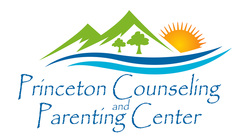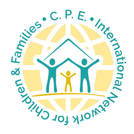|
Experts agree that parents who are divorcing need to have an age appropriate conversation with their children telling them: 1) “We both love you very much. Nothing will ever change that love and we will always be here for you.”, 2) ”The divorce isn’t your fault, it’s ours.” and 3) “Even though things are going to change, we will always be a family.” However, to give your children the best chance for a happy childhood, the positive messaging can’t stop there.
There are a number of effective strategies that are extremely important for parents to bear in mind. One strategy to minimize the negative impact of divorce on children is to keep children out of disagreements between the parents. Even when couples are married, children get upset when their parents fight. Imagine how much worse it is for children of divorced or separated parents. They already have experienced their family breaking apart. They need their parents to reassure them that their new family structure is stable and secure. Children need to know that their parents will work disagreements out in a calm and rational way. Another way to minimize the negative impact of divorce on children is to avoid saying anything negative about the other parent in front of the children. When parents say negative things about the other parent, they “parentify” their children. They actually switch roles with the child and children become the parent. Many parents don’t even realize that they do this. They rely on their children to be their support system and share information with children that children shouldn’t be aware of. For example, a father complains to his children that he has to pay so much in alimony. Or a mother complains that the father called her a name. These things are very upsetting to children and can be damaging. Separation and divorce can be an extremely difficult time in life and it’s very important to get support such as a therapist or a divorce coach. This will enable parents to have someone to talk to so that they won’t put their children in the middle of their conflicts with their ex-spouse. This will enable children to focus on school, friends and their own lives which is what we want them to be focused on. Finally, if your child complains about the other parent, encourage your child to work things out with him or her. Say something supportive like, “I’m sure that mom didn’t mean to upset you. Talk to her about it.” It’s so important for children to have strong relationships with both parents, if at all possible. These strategies can make the difference and result in children who grow into adults who have happy lives and healthy relationships. |
AuthorJill Barnett Kaufman, MSW, LCSW and Certified Parent Educator is an experienced clinician who helps clients discover new ways to resolve a variety of challenges and bring more happiness and peace into their lives. Archives
November 2023
Categories
All
|
|
If you are in crisis or in need of emergency assistance, please call 911. |
|



 RSS Feed
RSS Feed


